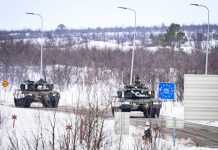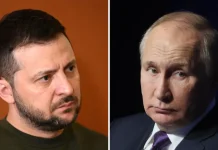In recent years, the relationship between Belarus and Russia has become increasingly complex, drawing attention to President Aleksandr Lukashenko’s diplomatic maneuvers.
The central question that looms over international observers is whether Lukashenko is attempting to appease or pacify Vladimir Putin to safeguard his country from a potential Russian invasion. A comprehensive examination of the political, economic, and strategic dynamics reveals a nuanced interplay that goes beyond simplistic interpretations.
Belarus, nestled between Russia and the European Union, finds itself in a delicate geopolitical position. Lukashenko, often referred to as Europe’s last dictator, has ruled Belarus since 1994, maintaining a tight grip on power. However, the changing regional dynamics and the pro-democracy movements in neighboring countries have added layers of complexity to his rule.
Economically, Belarus has traditionally been dependent on Russia, particularly in the energy sector. The country relies heavily on Russian oil and gas imports, making it susceptible to economic pressure from Moscow.
Lukashenko’s diplomatic approach has included efforts to diversify Belarus’ economic ties, seeking closer relations with the EU and exploring alternative energy sources. These moves, however, have not gone unnoticed by Putin, who views Belarus as within Russia’s sphere of influence.

One key aspect of Lukashenko’s strategy is balancing his relations with both Russia and the EU. By maintaining a delicate equilibrium, he seeks to avoid alienating either side while securing economic benefits and diplomatic support.
Belarus’ participation in the Eastern Partnership, an initiative aimed at fostering closer ties between the EU and Eastern European countries, underscores Lukashenko’s efforts to engage with the West.
The events surrounding the forced landing of a Ryanair flight in Minsk in May 2021 brought Belarus into the international spotlight and strained its relationship with the EU. While Lukashenko’s actions were widely condemned, they also highlighted his determination to resist Western influence and align with Moscow when faced with external pressures.
On the military front, Belarus and Russia are part of the Collective Security Treaty Organization (CSTO), a military alliance formed among post-Soviet states. This alliance theoretically commits its members to mutual defense in the event of aggression.
Lukashenko has leveraged Belarus’ participation in the CSTO to maintain a security buffer against potential threats, emphasizing the importance of the alliance in deterring external intervention.
However, the military relationship between Belarus and Russia is complex. While the two countries conduct joint military exercises, there have been instances of Lukashenko resisting complete integration of Belarusian forces into the Russian military structure. This resistance may be seen as a tactical move to preserve Belarus’ sovereignty and prevent it from becoming a de facto Russian satellite state.
Lukashenko’s balancing act is evident in his handling of domestic dissent and opposition. The widespread protests following the disputed 2020 presidential election highlighted a growing discontent within Belarusian society. While suppressing dissent, Lukashenko has also engaged in occasional verbal sparring with Putin, signaling to the West that he is not entirely subservient to Moscow’s wishes.
The economic integration initiatives proposed by Russia, such as the Union State and the deeper integration of the two countries’ economies, present a complex challenge for Lukashenko.
While publicly endorsing the idea of a union, he has been cautious in implementing measures that could erode Belarus’ independence. The delicate dance between cooperation and resistance allows him to maintain a semblance of autonomy while avoiding outright confrontation with Moscow.
The situation in Ukraine serves as a backdrop to Lukashenko’s calculus. The Russian annexation of Crimea and the ongoing conflict in Eastern Ukraine have heightened concerns about Russia’s expansionist ambitions.
Lukashenko, undoubtedly aware of the potential vulnerability of his own regime, has sought to avoid actions that might provoke Moscow while simultaneously pursuing strategies to diversify Belarus’ international partnerships.
President Lukashenko’s diplomatic approach towards Russia is a complex dance of strategic maneuvers aimed at preserving Belarusian sovereignty in the face of regional uncertainties.
Balancing economic dependence, military alliances, and domestic stability, Lukashenko walks a tightrope between appeasement and resistance. As the geopolitical landscape continues to evolve, Lukashenko’s ability to navigate these intricate dynamics will shape the future of Belarus and its relationship with its powerful neighbor to the east.












